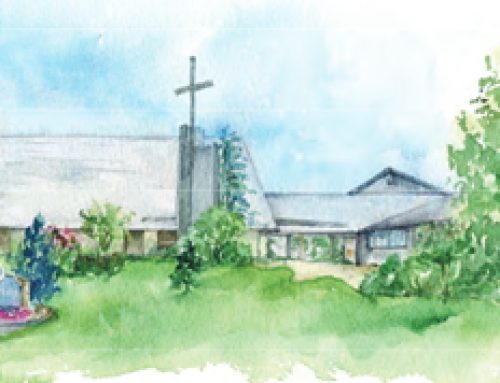FROM THE PASTOR’S DESK
Dear Parishioners,
Peter is one of the most important saints of the Christian tradition. He is the first of the apostles, the rock on which Jesus builds the church. The New Testament tells us many things about Peter. In fact, in the gospels no other character is mentioned more than Peter with the exception of only Jesus himself. So, what do the scriptures tell us about Peter? They tell us that he often speaks up with confidence, and that he is just as often wrong. Peter is the one who tries to convince Jesus to avoid the cross. Peter refuses to have his feet washed at the Last Supper. Peter thinks he can walk on water and sinks. Peter denies Jesus three times during Jesus’ trial. And in today’s gospel, Peter is the one who comes up with this bizarre idea of setting up tents on the Mount of Transfiguration. When you examine the incidents that refer to Peter, they are one blunder after another. Generally, whenever Peter opens his mouth, he discovers that his foot is in it.
Now it might seem odd that this often-misguided disciple should become one of the greatest saints of the church. But flawed saints are the best saints, because they are like us and teach us how to live. What does Peter teach us? Peter shows us that following Jesus often involves the ability to re-evaluate our convictions. Peter regularly speaks up with boldness and confidence. But when he discovers that he is wrong, he is willing to change. In time he comes to accept that Jesus must bear the cross. He allows Jesus to wash his feet at the Last Supper. He repents of his denial of Jesus during the Passion. He lets go of the strange idea of pitching tents on the mountain. What Peter shows us is that part of discipleship is to reexamine our ideas, learn from our mistakes, and have the capacity to think again. This willingness to change is essential for both spiritual and personal growth.
Your spouse says something that irritates you, a son or daughter speaks out of turn, and you are quick to push back and say, “This is what’s going to happen. This is what is acceptable.” Your words are quick and hot, but are they the best? Can you with Peter think again, swallow your mistake, and start over. In this polarized political climate certain words trigger an immediate response: healthcare, immigration, tax reform. When one of these words is spoken, we speak our piece; we dig in our heels. But when we begin to realize that none of us is going to move forward with everyone dug into a ditch, can we be like Peter. Can we admit we spoke too quickly? Can we dial the energy back a bit and try again? Every time we face a transition in life, a transition resulting from divorce, retirement, or the loss of a loved one, we can be quick to adopt a conclusion. We claim our ground and say, “This is possible, and this is not. This is what I will consider, and this is what I will not do.” But once we see we are standing alone and going nowhere, can we admit with Peter, “I jumped too quickly. My thinking was misguided. I think I should re-consider my options.”
Revaluating our thinking is not a sign of weakness. It is a sign of maturity and growth. This is why God gives us time to change. So, the next time you speak too quickly and find that your foot is in your mouth, don’t bite down. Remove your foot, and like Peter-think again.
Peace,
Fr. Monteleone
To read the complete bulletin click here



